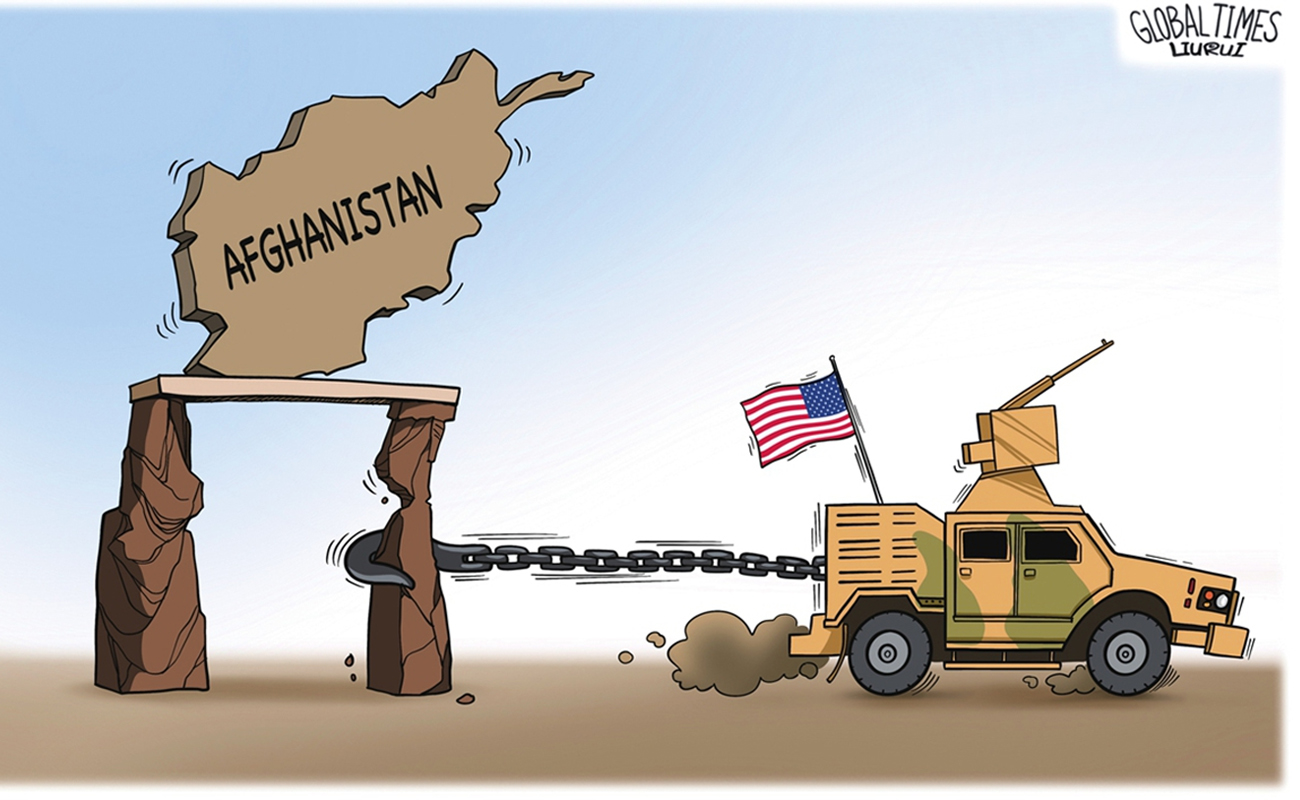Kabul still grapples with mess of US withdrawal
By Dr. Davood Moradian
In mid-August 2021, US troops began to withdraw from Afghanistan as the Taliban took over the capital of the country, Kabul. The third anniversary of the US' disastrous Afghanistan withdrawal provides a somber occasion to reflect on the consequences of the pullout on regional security and global stability, and more importantly to contemplate the way forward.
The US has left behind a mess in Afghanistan. The UN and other international organizations' periodical reports paint a gloomy picture of growing humanitarian, security and economic crises. According to the UN humanitarian agencies, 23.7 million Afghan people, including 9.2 million children, remain in need of humanitarian assistance, with around half the population living below the poverty line.
Moreover, Afghanistan is the world's fastest-growing producer of methamphetamine, the deadliest type of illicit drug. Afghanistan also holds the title of being drug addiction capital of the world, with nearly 10 percent of the country's population being regular drug users. Afghan women face numerous challenges in their daily lives. Additionally, Afghanistan is listed among the top 10 countries most at risk of experiencing a climate disaster.
According to the UN monitoring team, various terrorist groups, including Al Qaeda, Islamic State, and Tehrik-e Taliban Pakistan (TTP), are operating in Afghanistan. The threat of terrorism from these groups remains high in conflict zones and neighboring countries.
Islamic State and its Afghanistan affiliate, Islamic State-Khorasan Province, pose a serious threat. Over the past year alone, Islamic State has been linked to terrorist attacks and plots in not only Afghanistan, but also regional countries, including India, Iran and Pakistan, as well as European nations Austria, Belgium, Switzerland and Germany, among others.
Terrorist attacks originating from Afghanistan have particularly impacted the security of Pakistan. According to Pakistan's Special Envoy for Afghanistan Asif Durrani, the TTP attacks in Pakistan increased by 60 percent during the last two years. During the first quarter of 2024, Pakistan saw 245 reported terror-related incidents, most of which happened in provinces bordering Afghanistan.
For many US officials and experts, another major terrorist attack on US soil seems to be no longer a question of "if," but "when" and "how deadly." Many worry that the world may witness the return of the pre-9/11 era in terms of the spread of the threat of terrorist activities. In other words, the defeat in Afghanistan is the central piece of the global failure in combating international terrorism.
The withdrawal of the US troops has also weakened the credibility and authority of the post-World War II global order and institutions. The wars in Ukraine and Palestine have been exacerbated by the US' fading influence and its partisan approaches toward the belligerent parties.
The Western world's betrayal of Afghan women also cast doubt on their global claim of promoting and protecting women's rights.
Prior to Afghanistan's entanglement in the Cold War and the ensuing decades of instability and conflict, the country was a poor, developing nation. But it was also relatively peaceful and stable. The global and regional proxy warfare has caused immense suffering to the people of Afghanistan.
The tragedies of the 9/11 terrorist attacks, the influx of millions of Afghan refugees and the booming illicit drug trade have demonstrated that the problems of Afghanistan extend beyond its borders. Addressing the country's immense challenges requires collaboration among key stakeholders, including Afghans, regional players and the global community.
The five permanent members of the UN Security Council should coordinate their efforts to facilitate a UN-led political process involving Afghan stakeholders, neighboring countries, and global powers. The long-standing conflict in Afghanistan has proven that exclusive, aggressive politics and proxy warfare are not sustainable solutions. It is time to move past the Great Game mentality of the past and embrace mutually beneficial cooperation.
The article was first published in Global Times on August 14, 2024.
Dr. Davood Moradian is the Director-General of the Afghan Institute for Strategic Studies and a Former Senior Policy Adviser at the Ministry of Foreign Affairs. He tweets @DrMoradian1.
Academicians and Officials interested to publish their academic pieces on this page, please approach us through: contact@aissonline.org.
The article does not reflect the official opinion of the AISS

